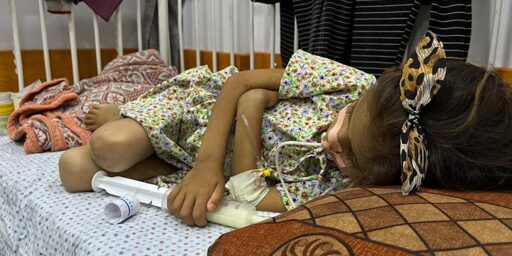Dr. Rana Zaiter is chief of clinical nutrition at Al-Awda Hospital in Nuseirat in the middle of the Gaza Strip, which has a specialized department to treat severe acute malnutrition in children under 5. She paints a bleak picture: “We are overwhelmed. Every day, we see more children arriving with extreme weight loss, anemia, and symptoms of immune deficiency. Children are too weak to fight infections. They have constant gastrointestinal illnesses, are lethargic, dizzy, and often can’t even play or stand. Some are developing bowed legs — a clear sign of rickets and calcium deficiency.” Dr. Zaiter attributes the explosion in cases to the ongoing famine, closure of crossings for over 80 days, and soaring poverty. “Mothers cannot breastfeed properly due to their own poor nutrition. Their milk is insufficient and unfulfilling. Babies cry constantly from hunger,” she says. “Pregnant women are giving birth prematurely, to underweight babies, because their bodies can no longer sustain the burden of pregnancy.” Dr. Zaiter adds that nearly one-third of all pediatric cases at Al-Awda now involve moderate or severe malnutrition. The hospital follows treatment protocols from WHO and UNICEF, but a dire lack of supplies— including therapeutic foods, fortified biscuits, high-energy peanut butter, and infant formula — has crippled their ability to treat patients effectively. “When the crossings briefly reopened in late May, only a tiny fraction of the needed supplies made it through — barely 1 percent of actual demand,” said Dr. Zaiter. “We are operating in lifesaving mode. We need urgent international action to open the crossings and flood Gaza with nutritional aid before it’s too late.”

